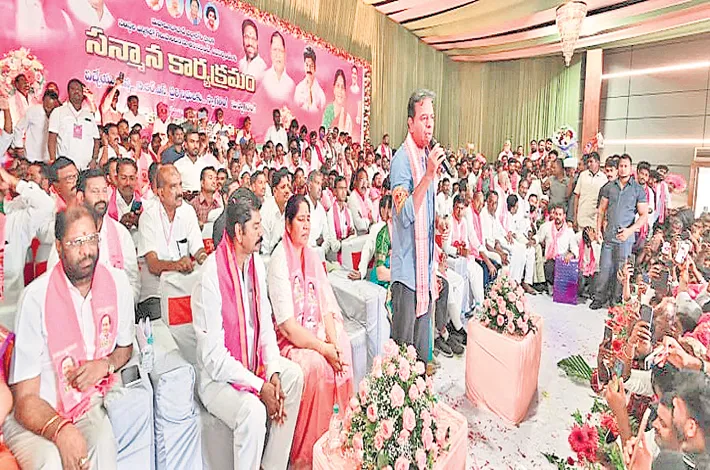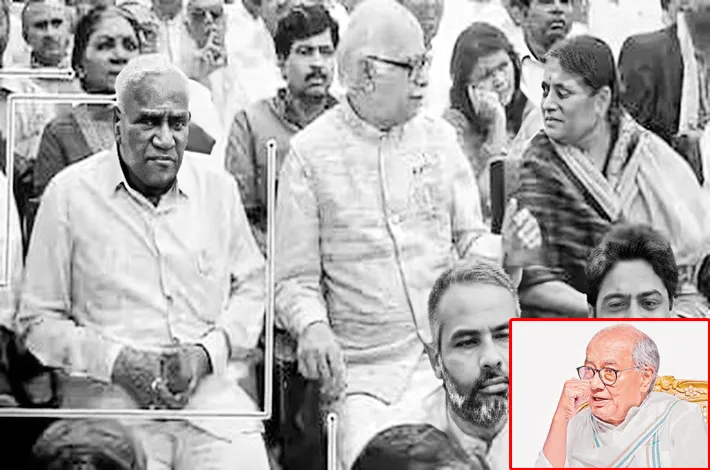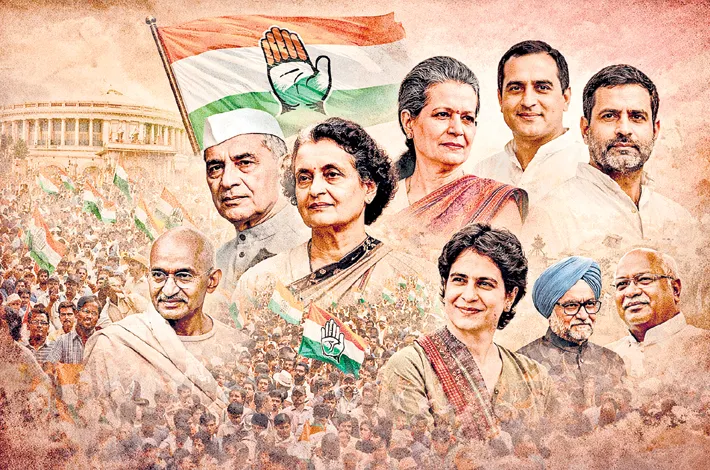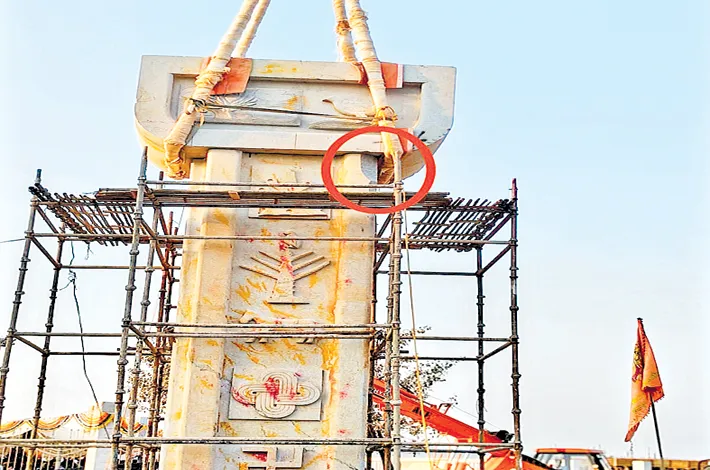Strings of Serendipity in mumbai
16-10-2025 12:00:00 AM

The air at Miraj railway junction hummed with the ceaseless rhythm of life—whistles piercing the dawn like impatient lovers' sighs, vendors hawking chai with voices that rose and fell like ragas, and the metallic clatter of trains shuffling souls across India's vast tapestry. It was here, in the labyrinthine lanes branching from the station, that Manohar stepped off the Mumbai-bound express on a sweltering July morning in 2025. At 25, he was a wandering veena player, his calloused fingers a map of melodies unplayed, seeking solace in the town's fabled instrument bazaar. Miraj, the cradle of strings, whispered promises to musicians like him: find your voice, and it might find you back.
The store, a narrow alcove called Raag Emporium, was a sanctuary of aged wood and resonant dreams. Shelves groaned under the weight of sitars with necks like elegant swans, their gourds polished to a moonlit sheen. Tanpuras slumbered in corners, their four strings taut with unspoken harmonies. Manohar inhaled the scent of sandalwood and rosin, his heart quickening as he traced the frets of a tanpura, its body carved with intricate floral motifs. He needed one for his evening ragas—simple, steadfast, a companion to his solitude.
That's when he saw her. Neerja, 24, with eyes like kohl-rimmed monsoons and a dupatta the color of ripening jamuns, knelt before a row of sitars. Her fingers danced tentatively over the sympathetic strings, coaxing a tentative twang that hung in the air like a question. She was a classical vocalist from Kolhapur, her voice a silken thread in the weave of Hindustani tradition, but today she sought a sitar to bridge her songs with the earth's own pulse. The shopkeeper, a wizened pandit with a beard like silver wire, hovered nearby, muttering about gourds from Calcutta and bridges from Lucknow.
"Try the one with the raven-black tumba," Manohar offered, his voice low, almost lost in the store's echo. She turned, surprise softening into curiosity. Their eyes met—his steady as a drut tala, hers flickering like an alap's first notes.
"It's too heavy on the bass," she replied, her Kolhapuri lilt wrapping around the words like a gentle meend. "I need something that bends with my voice, not fights it." She extended the sitar toward him, an unspoken invitation.
He took it, his fingers brushing hers—a spark, fleeting as a sitar string's vibration. Plucking the main string, he let the notes bloom into Bhairav, the morning raga that mirrored the junction's awakening. Neerja closed her eyes, humming along, her voice weaving through his improvisation like jasmine through latticework. The shopkeeper nodded approvingly. "You two play like old friends."
By noon, they had lingered longer than intended. Manohar selected a tanpura with a gourd that thrummed like a lover's heartbeat, its tone pure and unyielding. But Neerja's quest was trickier; each sitar revealed a flaw—a fret too sharp, a resonance too hollow. "Come back tomorrow," the pandit urged. "The right one reveals itself in time."
Fate, it seemed, had other plans. As the sun dipped toward the Western Ghats, they wandered the junction's periphery, sharing a plate of misal pav under a banyan tree. Manohar spoke of his guru in Varanasi, who taught that music was the soul's secret language. Neerja confessed her fear of solos, how she yearned for a duet to amplify her timbre. Laughter came easily, sparked by tales of missed trains and mangled taans. By dusk, as the station lights flickered on like fireflies, he walked her to her guesthouse, the tanpura slung over his shoulder like a shield.
The next day dawned with purpose. Neerja arrived at Raag Emporium before the peacocks' cries, her salwar-kameez embroidered with tiny sitar motifs. Manohar was already there, tuning his new tanpura, its drone a steady undercurrent to the morning's chaos. Together, they dissected a dozen instruments. He held the gourds to her ear, listening as she improvised a fragment of Yaman. "This one sings with you," he said of a sitar with ivory inlays, its neck slender as a dancer's waist. She tested it against his tanpura, their sounds merging in a tentative jugalbandi—his plucks grounding her slides, her voice lifting his drone into flight.
Afternoons blurred into explorations beyond the store. They strolled the Sahyadri foothills, where wildflowers nodded to their melodies. Manohar revealed his tanpura's secrets: how to bow the strings for a sorrowful andolan, evoking lost loves. Neerja shared ragas her mother sang by lamplight, her fingers on the sitar growing surer with each day. On the third evening, as monsoon clouds gathered, they sat on a railway platform bench, instruments between them. The tanpura's hum rose like incense, and Neerja's sitar responded in kind—a full alap in Malkauns, the raga of longing. Passersby paused, drawn by the alchemy: his rhythm, her melody, intertwining like vines.
In that moment, admiration cracked open into something deeper. Manohar's gaze lingered on the curve of her neck as she leaned into a gamak, her breath syncing with the strings. Neerja felt his presence like a harmonic overtone—warm, enveloping, essential. "You've given this sitar a voice," he murmured, his hand covering hers on the fretboard. "And me... a song I didn't know I was missing."
She smiled, tears glistening like dew on a gourd. "Then let's compose together. Not just here, but everywhere."
The pandit, witnessing from his doorway, beamed as if he'd strung the match himself. By week's end, Neerja claimed her sitar—the raven-black one, after all, tempered by their trials. Manohar's tanpura found its eternal foil. They left Miraj not as strangers, but as partners in harmony.
Months later, in the gilded halls of Mumbai's music sabhas, their jugalbandi debut silenced the cognoscenti. Manohar's tanpura wove the drone that cradled Neerja's voice and sitar, a tapestry of love's own raga. Offstage, in quiet alcoves scented with attar, they tuned not just strings, but souls—promising concerts and children, encores of whispered vows. From a chance twang at a railway junction store, two hearts had fretted their way into forever, their love a melody that echoed through life's endless stations.








